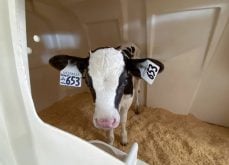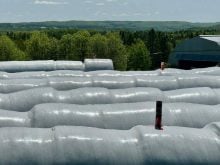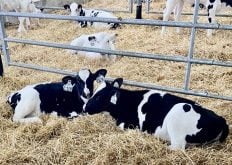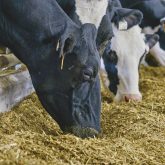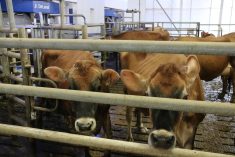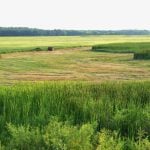Compost bedding packs that get too wet can be bad news and result in problems with slower composting, milk quality and the need to add more bedding.
Those are findings from recent research projects on Ontario dairy farms, conducted by students at the University of Guelph, including Angie Wilson, who is completing her post-doctoral research in the lab of Rene Bergeron.
Why it matters: Compost barns help farmers who are looking for a system with less equipment, but good cow comfort.
Read Also
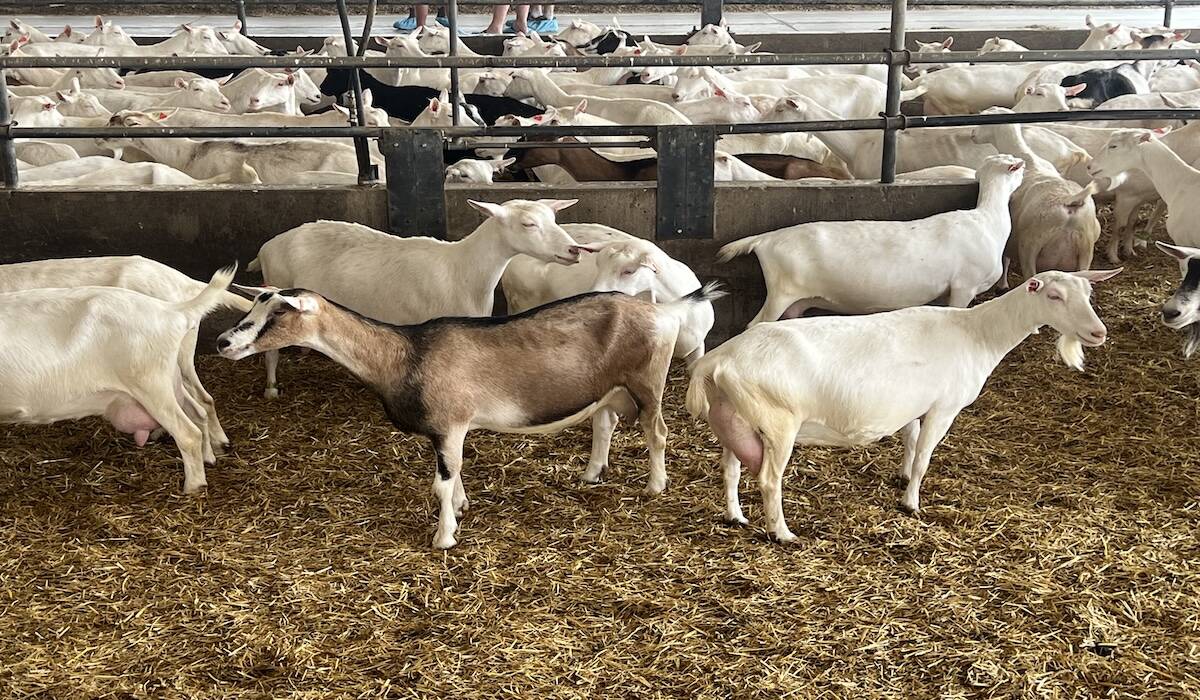
Ontario dairy goat producers move toward forming provincial board
Creation of a Dairy Goat Board under the Ontario Farm Products Marketing Commission may be voted on by early 2026.
More than half of Ontario dairy farms house their cows in tie stalls, although more than half of the cows are housed in free stalls, says Wilson.
The new Dairy Code of Practice sets April 1, 2027, as the deadline for cows to no longer be tethered continuously for their production cycle, which means many tie-stall farms will have to change.
Compost bedded packs are a transition option for tie stalls.
The bedded packs provide freedom and space for cows with some welfare positives, including fewer hock injuries, better footing while in heat and the ability to lie down in all positions.
“Currently there are limited data and best management practices for managing the system in Canada,” said Wilson at the recent Campbell Centre for the Study of Animal Welfare (CCSAW) symposium at the University of Guelph.
Compost bedded pack systems have to be managed with daily tilling of the pack to maintain enough air in the pack to encourage composting.
There are estimated to be between 100 and 150 compost-bedded pack dairy barns in Ontario. The study Wilson was involved with enrolled 25 of those farms.
Producers filled out a survey and were visited six times, two months apart, over a year to observe seasonal variation.
The larger team on the project captured data on management practices, pack condition, milk quality and cows.
Cows were scored on various parameters using the proAction scoring system.
About seven per cent of cows in the study were considered to be lame. That compares with a range of 13 to 37 per cent in Canadian free stalls. There were almost no injured hocks in the compost bedding systems, at 0.3 per cent. That compares to 39 to 47 per cent in Canadian free stalls. Knee injuries were also rare in the compost pack system.
The animal welfare advantages of compost bedded packs were well-proved, but that’s as long as the system is managed well.
Lower moisture in the pack is key to lower bedding needs and to maintain the system’s animal welfare advantages.
Humidity of the environment is also a significant factor in success. It is easier to manage a bedded pack in Ontario in the summer, with some producers going months without needing to add more bedding.
Adding more bedding costs more, but it also means driving on the pack more, which results in compaction, less oxygen in the pack and therefore, less composting.
Wilson says that tilling deeper than 30 centimetres could have advantages in lowering pack moisture, although research by Kendra Gillett, a master’s degree student at the University of Guelph produced data from the same project that didn’t show any difference between tilling to 20 cm and 37 cm over four weeks. Her poster on the issue at the CCSAW event said that it might take longer to realize the advantage of deeper tilling.
“It is possible that tilling deeper into the pack increases the composting and increases moisture loss,” says Wilson.
Deeper packs are also warmer packs. That’s not surprising as they would have been longer since they were cleaned out and as a result were more likely to be effectively composting. Deeper packs also are likely to lose less heat due to their thickness.
The compost-bedded pack research is funded by OMAFRA, Dairy Farmers of Ontario and the Quebec dairy producers.






